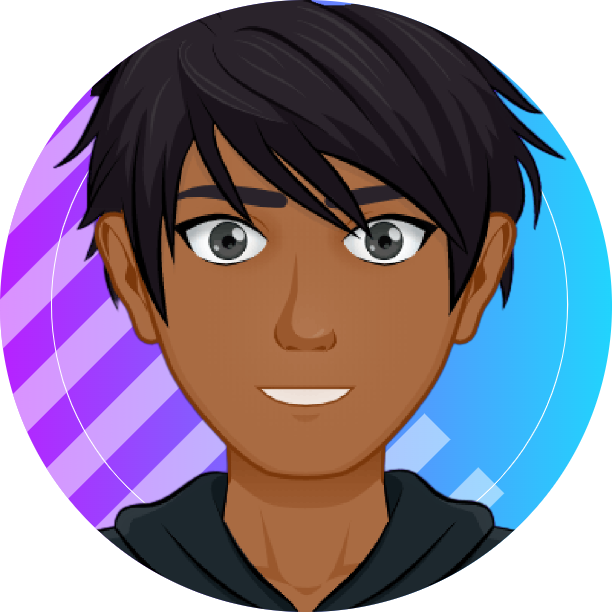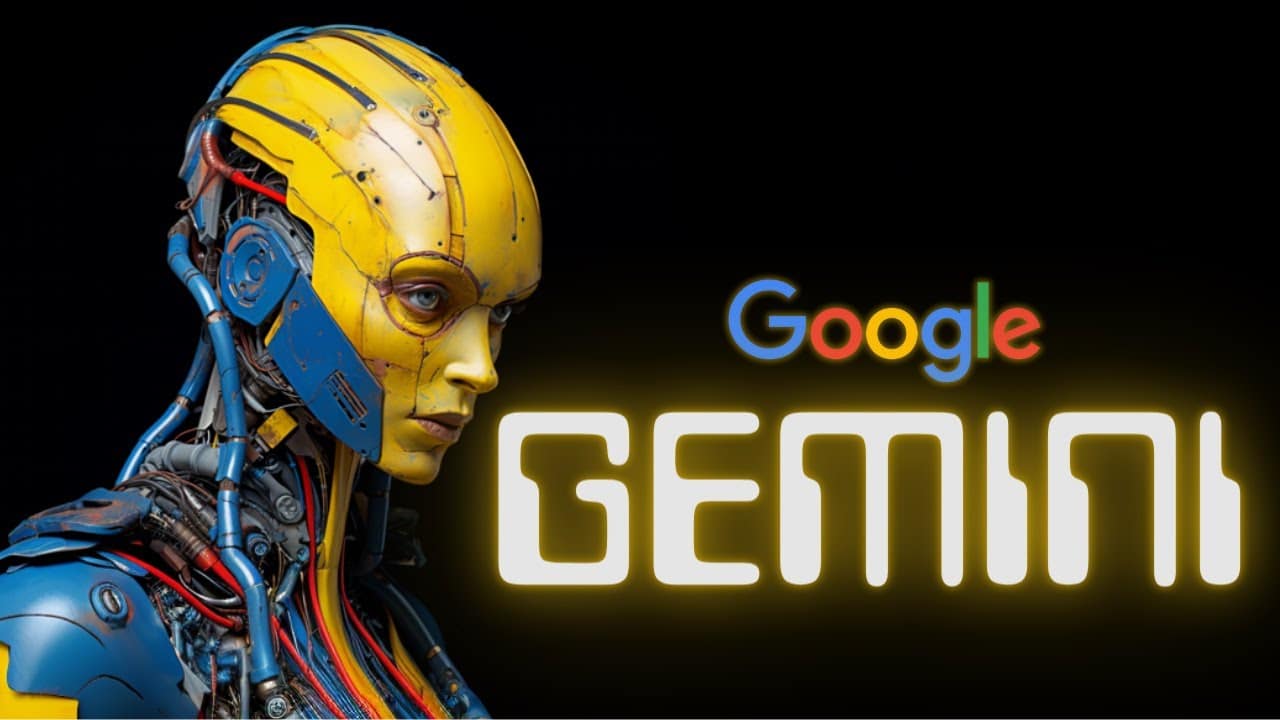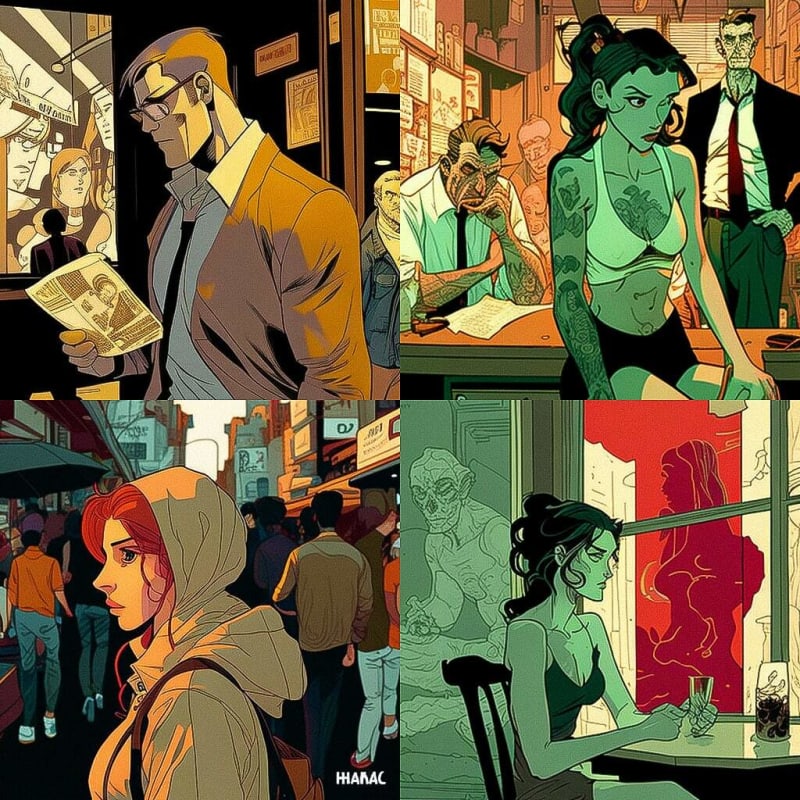The AI Showdown: Google's Gemini vs. OpenAI's Chat GPT - Who Will Prevail?
 raju ghorai
raju ghorai
In the fast-evolving world of artificial intelligence, a new battle is about to commence. Google's highly anticipated Gemini is stepping into the ring with OpenAI's heavyweight champion, Chat GPT. Today, we'll explore the fascinating realm of these AI giants and what they mean for the future of technology.
Before we dive into the details, don't forget to hit that "Like" button, subscribe to our channel, and ring the notification bell to stay updated on all things AI-related. Now, let's take a closer look at Gemini - a true marvel in the world of conversational AI.
Gemini: The Multimodal Marvel

Gemini is not just another run-of-the-mill conversational AI; it's a technological marvel that can handle text, images, and audio seamlessly. It's a universal language that bridges the gap between humans and technology. Google has recently opened up testing of Gemini to select companies, hinting at an imminent consumer launch.
On the other side of the ring, we have Chat GPT, which has been making waves in various industries since its introduction last November. From finance to healthcare, organizations are racing to harness their jaw-dropping conversational capabilities. While Google appears confident in its AI-first future, what exactly does that entail?
Google's Vision: The AI-First Future

Google is weaving AI magic across its services, from Docs to Maps and Search. With fresh AI upgrades in the pipeline, Google is reshaping how we navigate the digital universe. The competition is heating up, and we must brace ourselves for the AI battle of the ages. Are you excited about it? Let us know in the comments below.
But that's not all; Google's Bard AI is also levelling up. It's not just about writing essays or organizing events anymore; it's now a multi-tool wonder. You can ask it to plan your trip with real-time options or summarize meeting notes. Bard even speaks multiple languages and offers fact-checking capabilities. Your data remains private, and there's no hidden AI training or targeted advertising. Plus, the new double-check feature ensures accountability and transparency.
Google's AI Integration Vision
Google's recent developments with Bard give us a glimpse of its vision - integrating generative AI across all services. What are your thoughts on this potential Google-dominated AI future? Are you for it or against it? Share your opinions in the comments section.
But Google isn't the only player with a highly anticipated AI tool. OpenAI's DALL·E3 is on the horizon, promising a unique twist with Chat GPT by its side. This dynamic duo is set to revolutionize the art scene, from photorealistic to fantastical creations. Prompt engineering has become a breeze with Chat GPT's assistance.
DALL·E3: The AI Image Generator
DALL·E3 is all about safety and respect. It won't mimic living artists or meddle with public figures. Artists have control, thanks to opt-out choices. DALL·E3 is making its grand entrance in October, and it's poised to redefine AI image generation. What are your expectations for it? Let us know in the comments.

Now, let's talk about some drama unfolding at Nvidia. Jacobo Pantelon, a brilliant scientist, recently left Nvidia and has some compelling insights into the AI landscape. He's concerned about the dominance of tech giants like Google, who hold the keys to vast amounts of data and computing power.
Pantelon's Call for Change
Pantelon believes it's time for a shakeup. He's advocating for power to be shared, rather than concentrated in the hands of a few giants. What's your take on this matter? Do you think the origin of AI matters, or should it be a more democratic endeavour? Share your thoughts in the comments.
Finally, let's discuss Anthropics, the minds behind the beloved Claude chatbot. They are scaling AI like never before but with a strong safety net in place.
Anthropic's Responsible Scaling Policy
Anthropic has introduced a responsible scaling policy (RSP) to prevent catastrophic AI misadventures. This policy introduces AI safety levels, mirroring the US bio-safety levels, from low-risk ASL 0 to high-alert ASL 3. The RSP is a living document, evolving and adapting to the ever-changing AI landscape.
In an era where AI ethics are under scrutiny, Anthropics, with support from tech giant Google, is setting the bar high for transparency and accountability. Could this be the dawn of a safer AI era? Share your thoughts in the comments.
In conclusion, the AI arena is evolving rapidly, and Google's Gemini, OpenAI's DALL·E3, and other innovative developments are set to reshape our digital landscape. As these AI giants continue to push boundaries, we can only anticipate a future where technology and human interaction merge seamlessly.
Subscribe to my newsletter
Read articles from raju ghorai directly inside your inbox. Subscribe to the newsletter, and don't miss out.
Written by

raju ghorai
raju ghorai
FullStack Developer BE